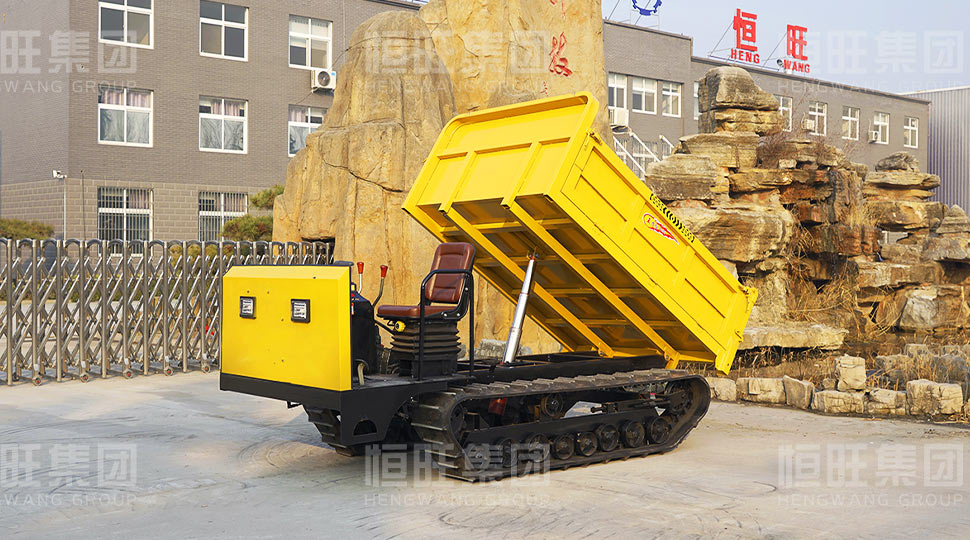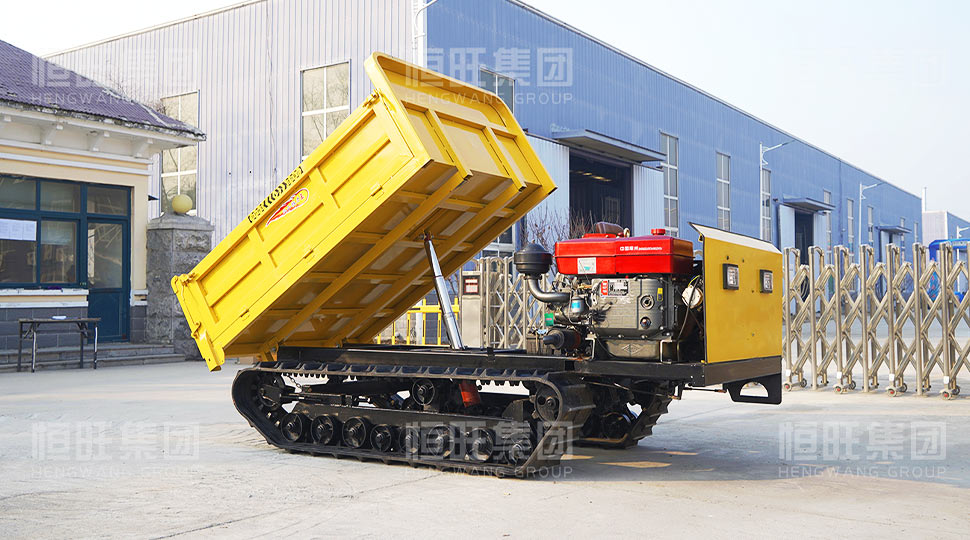In mining projects, the selection of mining material carriers directly impacts operational efficiency and costs. Underground and open-pit mines have drastically different working conditions, and improper model selection can lead to low efficiency or safety hazards. How to precisely match transport solutions?
Underground Mines: Dual Challenges of Narrow Spaces and Explosion Protection
Underground mine roadways often measure <3m in width, with high risks of gas/dust. Mining material carriers must meet:
· Explosion-Proof Performance: Require Ex certification to eliminate spark hazards.
· Compact Design: Turning radius ≤5m to adapt to low-height roadways.
Case Study: A gold mine in Gauteng Province, South Africa, had underground roadways only 2.8 meters wide, where traditional carriers frequently got stuck. After switching to Hengwang's HW800SL electric tracked mining material carrier (800kg load, explosion-proof motor), daily transport volume increased by 30%, solving the "narrow roadway transport dilemma".

Open-Pit Mines: Long-Distance and Heavy-Load Demands
Open-pit mining requires one-way transport over 20km and single trips of 15-30 tons. Mining material carriers need:
· High Load Capacity: ≥3-ton diesel power to meet heavy-load needs.
· Shock-Resistant Chassis: Reinforced suspension systems for rough terrains.
Case Study: An iron mine in Pilbara, Australia, doubled transport trips due to insufficient load capacity (only 1.5 tons). After replacing with Hengwang's HW3000L diesel tracked mining material carrier (3-ton load, engineering rubber tracks), single-trip time shortened by 20%, saving over 150,000 AUD in annual fuel costs.

Core Selection Recommendations
· Underground Mines: Prioritize electric small-tonnage models (e.g., HW800SL) for flexibility and explosion protection.
· Open-Pit Mines: Recommend diesel large-tonnage models (e.g., HW3000L) for heavy-load durability.
Contact us now to obtain the Mine Type - Model Matching Solution and let mining material carriers power efficient project operations!
